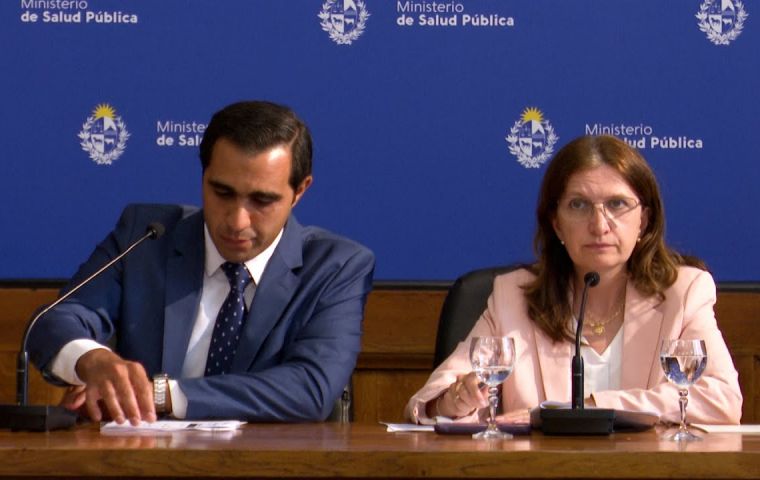
MONTEVIDEO, Jan 18 (NNN-MERCOPRESS) — Uruguayan authorities have launched a vaccination campaign against Covid-19 as the malady is spreading nationwide with a “moderate intensity,” it was reported in Montevideo. The Health Ministry said 330,000 booster vaccines have become available.
The campaign will begin on Jan. 29 in residential areas. The last phase is to be released on Feb. 24 and will include people over 50 years of age with comorbidities.
Health Minister Karina Rando said that the current epidemiological situation of the coronavirus was of “moderate intensity, sustained” for weeks. She also pointed out that there was no exact number of infected people because not all the population showing symptoms was tested.
“Although circulation is not low, the important thing is that there is no increase in serious patients” and most of them have a “mild” disease, added Rando.
Regarding the vaccines, she said that a new shipment of 330,000 messenger RNA (mRNA) technology adapted for the XBB strain vaccines will be arriving Thursday and will be made available to the general population as of Feb. 1. This monovalent vaccine has “an important coverage against all circulating strains,” Rando explained.
The ministry’s recommendation is to start with patients over 70 years of age, whether they have comorbidities or not. People between 50 and 70 years of age can be vaccinated if they have any comorbidity.
Meanwhile, vaccination is not recommended for people under 50 years of age, except in the case of “severe and proven” immunosuppressed people, who will be required to produce a medical certificate, as well as patients under treatment with immunosuppressive drugs and pregnant women. “In people under 50 years of age, inoculation is not justified because they usually have mild infections,” Rando argued.
Deputy Health Minister José Luis Satdjian said this summer’s deployment would be “staggered and cumulative” as is the flu vaccination campaign. The first group will start with long-stay facilities for the elderly. All residents are expected to be vaccinated within “seven to eight weeks”. The second group will begin vaccination on February 1 for people over 80 years of age, pregnant women, and immunocompromised patients.
The third group will begin on Feb. 8 and will include people over 70 years of age and people with Down syndrome. The fourth group will start on Feb. 14 and will include people over 50 years of age with comorbidities.
There will be 124 public and private vaccination posts while home vaccination will be also allowed, at a cost. Some mobile vaccination units will also be deployed, Satdjian noted.
Uruguayan virologist Santiago Mirazo said earlier this week in a radio interview that there was a very high underreporting of cases. “However, if we look at the level of hospitalizations and the impact of deaths, we do not have a high number.”
Regarding the seasonality of the virus, Mirazo pointed out that “in Europe and the United States, what we are seeing now is the circulation of the three viruses at the same time.” In the Southern Hemisphere, however, “what we are seeing is a lag.” In addition, there are fewer cases of seasonal influenza than in 2022, he also pointed out.
All in all, “we do not have a high number of Covid fatalities,” which would be “the most realistic number that one has as to the circulation level,” the scientist also stressed.
He also forecasted that in the winter influenza will start to appear as it does every year, but he was not so sure about SARS-CoV-2. — NNN-MERCOPRESS






